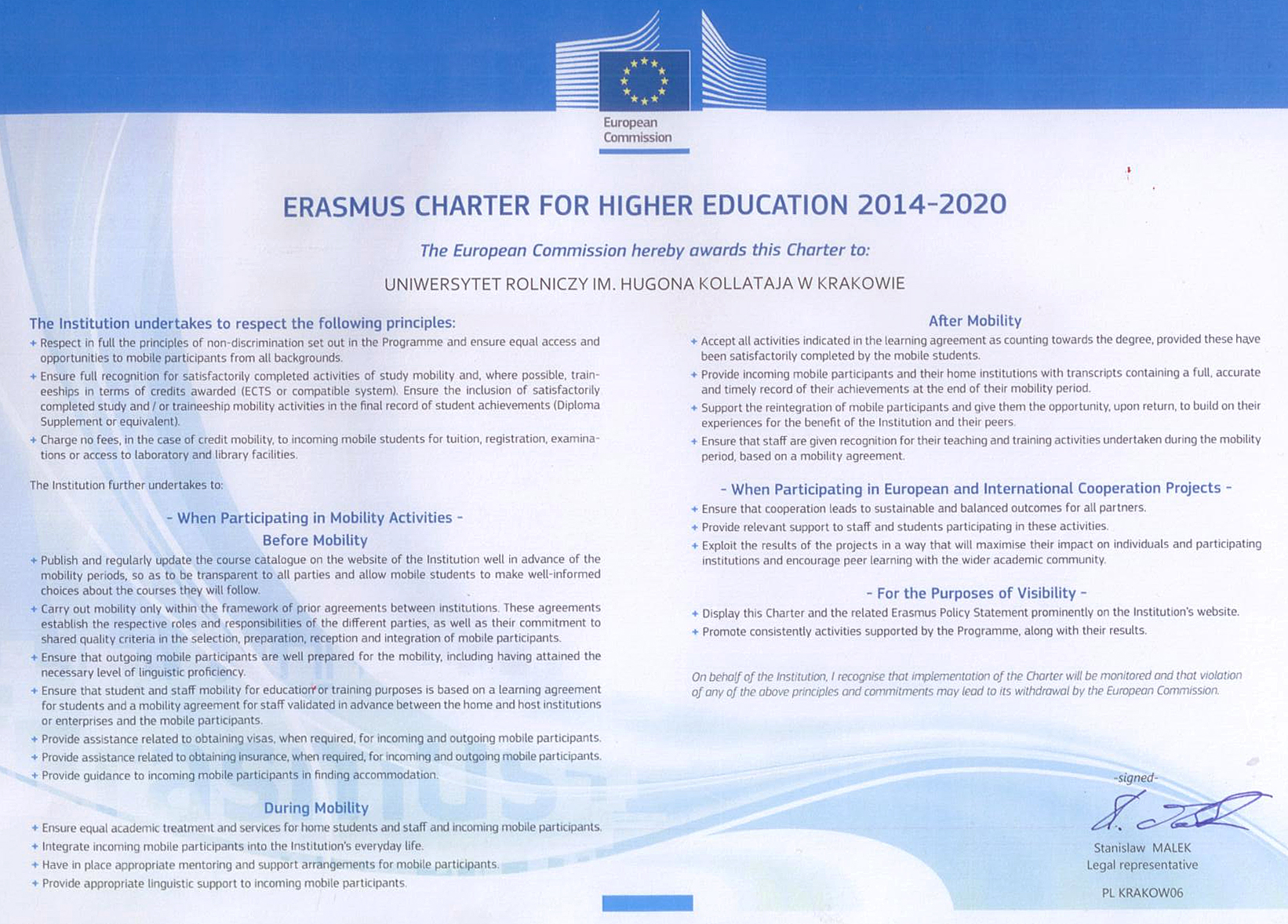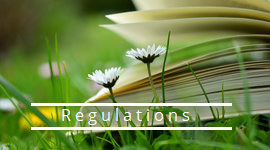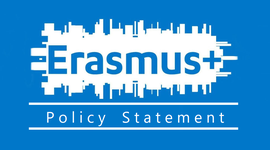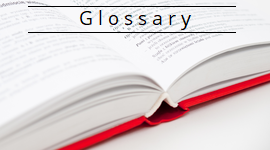The main objective of the University of Agriculture in Krakow is educating experts for agriculture, food and forest economies and environmental protection, able to meet the challenges of sustainable development. Participation in Erasmus programme will allow students gain additional knowledge and practical skills, provide opportunities to test language skills and intellectual potential, experience different teaching method and examination procedure. They will learn to live and work in multinational environments. Lectures or classes delivered by visiting lecturers from partner institutions will test our students’ understanding of the courses taught in a foreign language. Academic teachers participating in the programme will present their knowledge and language skills outside the parent university, meet more diversified students and gain valuable experience for future academic careers.
Multilateral projects will best serve the updating teaching contents and modernizing educational programmes to widen education offer. One of these may be e-Learning programmes in which we have already started cooperation with agricultural universities in the neighbouring countries. Future actions include cooperation with industry in the area of food production and other institutions in sustainable rural development aiming at developing outreach programmes offered by the Continuing Education Center created at the University of Agriculture in Krakow.
The programme outline has been published in an internal university newsletter sent to all organizational units and current progress of the programme will be reported there too. The programme description, information for students and teachers will be put on specially designed website together with information for incoming students. Full information about the programme, partner institutions and application deadlines will be displayed on a special Erasmus clipboard. The photograph of Erasmus Charter will be published in the University Bulletin, whereas the framed original will be displayed in the International Relations Office. Articles about the programme, opinions of its participants and statistical data will be published regularly in the university Bulletin.
Student and teacher recruitment will be preceded by meetings with Faculty coordinators and Deans responsible for didactic process and detailed information will be disseminated to all faculties. Meetings for interested candidates will be organized on all campuses; questions may be also send all questions by e-mail using a specially provided box on Erasmus website.
Programme is equally open to both genders and disabled students, should any apply. The university is adapted to receive students with movement disability.
Orientation weeks and buddy programmes will be organized for incoming students and all required information will be provided in printed form and by updated website.
Quality of academic mobility activities
Institutions with which Bilateral Agreements are signed are mostly renown European institutions, are well known to us from previous years of cooperation. Contact are usually made by faculty coordinators, who know the teaching programmes and can advise students on their choice of courses. The outgoing students are encouraged to visit websites of partner institutions to choose the best suited partner and then consult their choices with coordinators.
International relations office holds regular meeting with coordinators to inform then about the latest development of Erasmus programme, maintains contact with partner institutions, and offers every kind of assistance both to students and teachers. Preparatory language courses will be offered to outgoing students, willing to participate.
Faculty coordinators help students to prepare Learning Agreements, the documents are consulted with partner institutions. Agreements prepared on the basis of website course offer are signed by faculty coordinator and Dean (on our side) are then sent by IRO to partner institution for approval. Moreover, each outgoing student must prepares a “compatibility sheet” to compare the courses in the programme of studies in Poland and abroad. List of courses is agreed and signed before student’s leave for partner institution. Generally the course offer published on website is actual. All changes are consulted and introduced in a written form. Students are in touch with IRO and coordinators during their stay abroad, reporting progress or any problems and necessary changes in their Learning Agreements.
ECTS system has been introduced at all faculties of University of Agriculture, therefore the deans recognize the study period abroad, except one or two course which a student has to complete(no programmes are completely compatible). Erasmus students are allowed to complete their studies following individual study programmes arranged with the dean. For the next programme edition we also plan monitoring visits at partner universities. The study period abroad are included in the candidate profile of the Diploma Supplement issued to each graduate.
So far we have had little experience with incoming students, however in future we will organize tutoring and buddy programmes, as well as integration activities for them. Members of Student self-government have declared their help. Accommodation is provided for all foreign students who require it under the same conditions as for Polish students.
Teaching periods abroad are taken into consideration by the commission making regular periodic evaluation of teachers. Student placements are considered crucial for future graduates professional careers. Theoretical knowledge needs to be tested in practice, therefore practical training has been always an inseparable part of university education constituting one of the obligatory subjects. An academic tutor for students is appointed at each faculty for each specialization offered and under their guidance students prepare choose the enterprise in which they will be placed and prepare the work programmes. The tutor is responsible for monitoring their placements and holding an examination at the conclusion of the placement. The examination has been obligatory for further progress of studies. Some students were placed at the University experimental units where they could participate in research works. Erasmus will provide better opportunities to organize practical placements in foreign enterprises therefore enabling our students to meet the challenges of the European labour market and test their knowledge and skills in multinational environment. We hope that students will acquire new skills and ideas which could be even used to modernize out teaching programmes.
A coordinator of student mobility for placements will be appointed to supervise all administrative work. Each faculty will appointed a tutor responsible for the professional aspect of training. Such person will help student find the proper placement, prepared working programme and monitor his stay abroad. At this point we hope to use Their stay in foreign enterprises will be recognized as an additional achievement and mentioned in the Diploma Supplement.

















